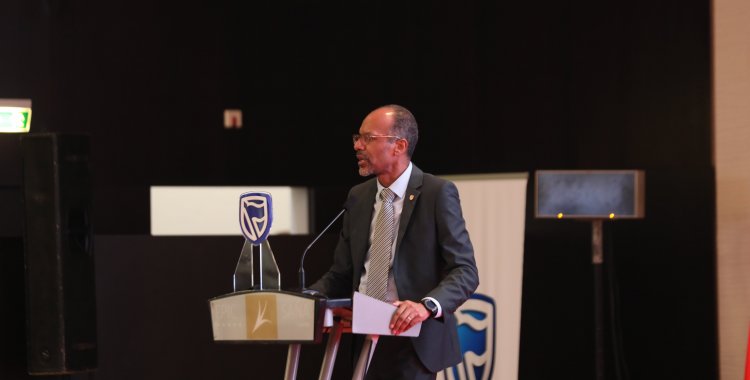Fausio Mussá was speaking this Wednesday during the Economic Briefing presented by the financial institution in Luanda.
"There is great competition in the banking sector in Angola and banks make a profit when they manage to obtain credit. Banking is becoming more competitive, the bad debt ratio has been decreasing and the granting of credit is more attractive", he considered.
For Fausio Mussá, what is lacking in Angola are not banks willing to lend money, they are people willing to contract debt: "it only makes sense to contract debt if you have an economically viable project", he stressed.
"I see Angolan banks with a strong appetite for lending, the difficulty is in finding customers with conditions", in order to keep bad debts at acceptable levels, he pointed out.
He also recalled that there are people who are completely excluded from the financial sector and do not even have a bank account.
"Banks operate according to market conditions, they operate in a market where the interest rate reflects a certain level of inflation in the economy, a certain level of value of the kwanza", added the economist.
On the other hand, he stressed that the role of banks is also to ensure that there is quality of credit and that the deposits that the bank captures are legitimate, so that Angola does not experience situations it has experienced before.
In his analysis, the economist also spoke of the global trend of high inflation, noting that it was a legacy of the pandemic, which was followed by a new shock due to the conflict in Ukraine.
Highlighting the current pre-election moment, he defended that there is little room for maneuver to manage the economy differently and that Angola must continue to carry out structural reforms to reduce dependence on oil.
On the positive side, he referred that Angola, after the successful program with the International Monetary Fund, also benefits from greater external support, whether from governments or international financial institutions, a progress that was used to stabilize oil production, which continues to be the engine of the Angolan economy.
He also addressed the issue of changes in interest rates that "can have very negative consequences" on the real economy, and the issue of fuel subsidies whose withdrawal he defended, as they distort market prices, despite helping to control inflation.
However, in an election year "no major adjustments are expected", he admitted.
As for the interest rate, it is expected to fall by the end of the year, given the fall in inflation and the trend towards an increase in credit to the private sector.
"We note that the reduction in the mandatory reserve ratio is a clear sign that the central bank intends to ease monetary policy. But in order to produce more credit in Angola, interest rates are not enough, it is necessary that property registration works better, that the risk center send information about the beneficiaries", he exemplified.
Despite the pressure of the elections, he predicts, however, that within the scope of fiscal consolidation efforts, a budget deficit can be avoided, and a surplus could even be generated if the price of oil remains above 100 dollars.
On the other hand, after a long period in which it was necessary to stabilize the economy, the Government will have debt capacity again, noted the expert, adding that it is necessary to know how this capacity will be used and to consider the debt costs.







